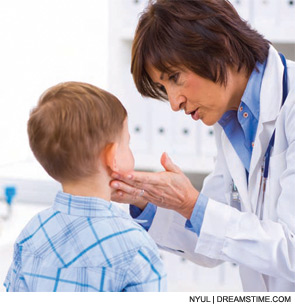The ACR/ARHP Annual Scientific Meeting is the premier event for specialists in the field of rheumatology, and this year’s planning committee is committed to providing attendees with educational opportunities specifically tailored to their areas of interest.
During this year’s meeting, pediatric rheumatologists will have many chances to hear from leading experts in pediatric rheumatology, increase their knowledge, and network with colleagues. Here are a few of the exciting offerings for pediatric rheumatologists.
The Pediatric Spondylarthropathies
This session will focus on the differences in clinical presentation and the course of spondylarthritis (SpA) in childhood. Ruben Burgos-Vargas, MD, from Hospital General de Mexico, will identify the spectrum of clinical presentation in childhood SpA, review the new data on pathogenesis, and discuss long-term outcomes for these patients. The goal of this session is to update the practitioner on pediatric SpA. This is an important offering for pediatric attendees because new therapies may have the most impact on the outcome of SpA when introduced in early disease, which often presents in adolescence.

Pediatric Rheumatology Study Group
The goal of this study group is to provide an update on the use of vaccines in the pediatric patient population. The group will focus on the safety and efficacy of vaccines in patients receiving biologic response-modifier therapies, as well as the evidence concerning the development of autoimmune diseases after immunization. Judy Beeler, MD, an investigator for the Laboratory of Respiratory Virus Diseases of the Center for Biologics Evaluation and Research at the Food and Drug Administration, and Yehuda Shoenfeld, MD, head of the Center for Autoimmune Diseases and Department of Medicine at the Sheba Medical Center in Ramat-Gan, Israel, are presenting this year’s study group.
Those attending this study group will have the opportunity to gain an understanding of some of the requirements used to approve vaccines for safe and effective use in healthy children—a subject of significant concern to those caring for pediatric rheumatology patients—and learn about some of the limitations and cautions that must be considered when determining whether or not a patient may be safely vaccinated.
Pediatric and Adolescent Systemic Lupus Erythematosus (SLE)
This session—presented by Michel Gilliet, MD, from the University of Texas M.D. Anderson Cancer Center in Houston; Deborah Levy MD, from New York Presbyterian Hospital in New York; and Hermine Brunner, MD, from Cincinnati Children’s Hospital Medical Center—will focus on the unique challenges of pediatric SLE, notably fertility and contraception issues, in the face of cytotoxic medications, as well as the impact of central nervous system lupus on adolescents in a school setting. In addition, the session will discuss new developments in childhood SLE pathogenesis and the implications for therapy. This session will address management problems in childhood SLE and help to update attendees’ basic understanding of this condition.
Current Issues in Pediatric Bone Health
This session—presented by Jon M. Burnham, MD, from Children’s Hospital of Philadelphia; Leanne M. Ward, MD, from Children’s Hospital of Eastern Ontario in Ottawa; and Deborah Wenkert, MD, from St. Louis University in St. Louis, Mo.—will cover hot topics in pediatric bone health. For example, why do patients with juvenile arthritis have an increased incidence of fracture despite the fact that fewer steroid medications are now used? What role does muscle development play in bone strength? Why are patients with chronic illnesses still not developing optimal bone density? What medicines should be used to treat osteoporosis/osteopenia? What exercises should pediatric rheumatologists prescribe for patients? What proof is there that calcium and vitamin D prevent osteoporosis? When should rheumatologists be suspicious that the patient they are seeing for arthritis has another condition?
